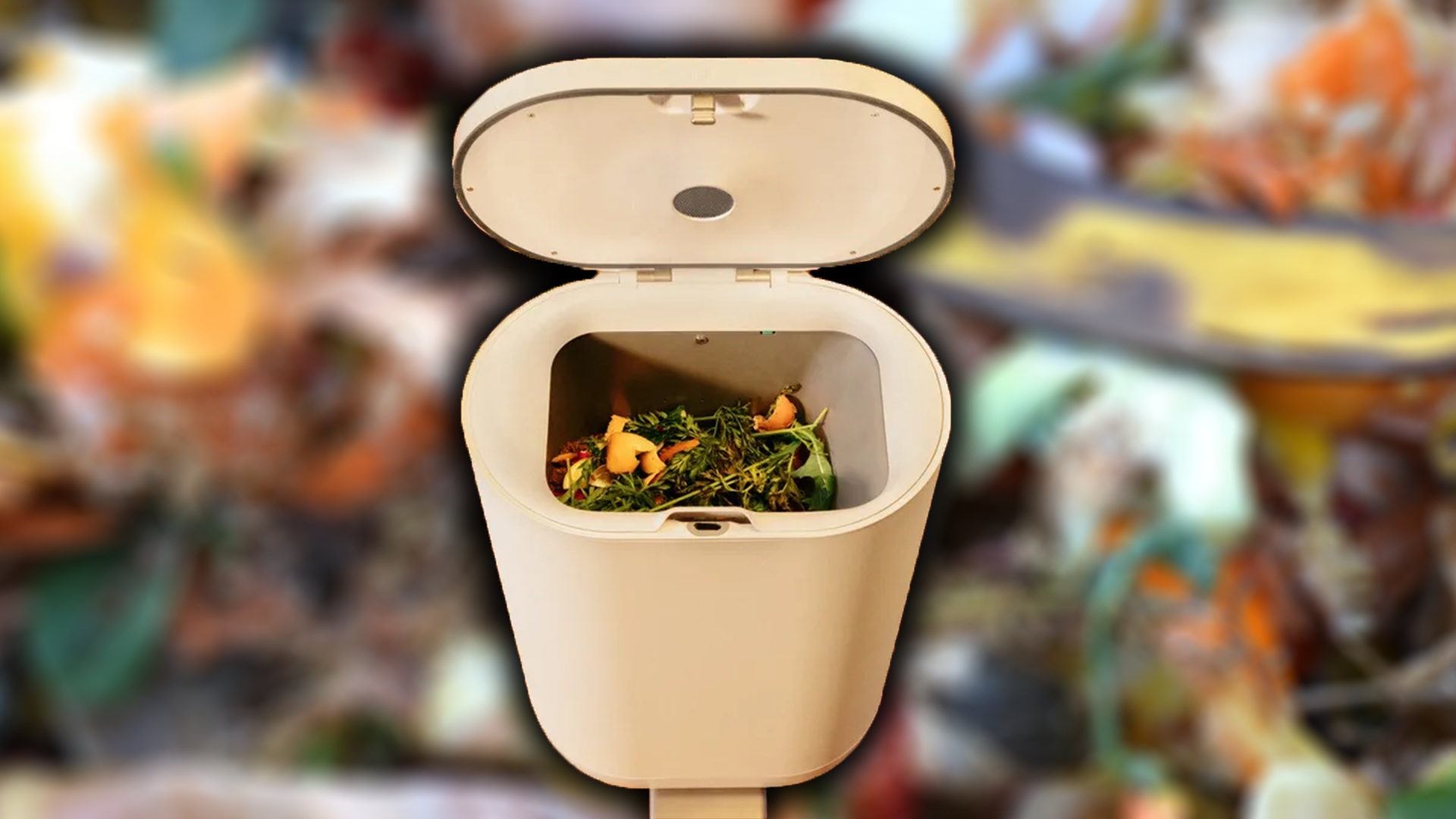We’ve all loaded too much onto our plates to throw the leftovers in the organic waste. Of course, this can happen again and again. However, this everyday process is also a burden on the environment. In the EU, around 130 million tons of leftovers are produced every year, such as the Environmental consultancy Austria reports.
Mill wants to change that. The membership-based food disposal system was developed by Google Nest co-founder Matt Rogers and aims to protect the environment by breaking down various leftovers. In this article, you can find out how the system is supposed to work and what the catches are.
Even more innovative ideas for the home could be seen at the CES tech fair this year. You can find our highlights of the fair here:
more on the subject
CES 2023 Highlights: The most exciting innovations at the tech fair
What can Mill do?
Up to two mill fillings are to be returned in a package to be processed into chicken feed. (Image: Mill)
Mill is an electric trash can for all your leftover food. Unlike a conventional compost heap, Mill is designed to completely decompose the leftovers in just one night. Food that is not normally composted should also be decomposable. Including meat or dairy products.
Another advantage is the smell. According to the manufacturer, this is greatly reduced, so you don’t have to worry about bad smells in the kitchen.
The end product produced is therefore not a pungent-smelling compost, but crushed and dried leftovers, which can theoretically also be used as soil in the garden. However, the manufacturer advises against this, as leftovers from dairy products, oils or meat could be incompatible with plants.
The end product is a pile of dried food leftovers that should hardly emit an odour.
The progress of the decomposition should be visible via app. It is not known whether Mill will also be controllable via software. Once the garbage can is full, you can send the end product back to the manufacturer, who will process it into chicken feed so as not to waste the food.
Doesn’t transport pollute the environment even more? According to that official FAQ a household can avoid around half a tonne of greenhouse gases through Mill. This is to be made possible through a partnership with the United States Postal Service (USPS). This allegedly drives past almost every house every day anyway and the environment is therefore not additionally polluted.
The box of the end product should be able to be transported up to 20,000 miles before it would no longer be worthwhile.
cost and availability
As mentioned above, it is a paid membership based system. If you want to take out an annual subscription, you pay $33 a month – that’s $396 a year. The costs for the device and the shipping of the end product are then already included in the subscription. Those who take out a monthly subscription pay $45 per month plus an additional $75 for shipping the device.
The available trash cans are said to be limited for the time being and to take part in the program you have to register register on the website
author’s opinion

Jan Stahnke: Mill is a very interesting approach for me, with a clear weakness. On the one hand there is the subscription model, which doesn’t sound very cheap to me. On the contrary. Just under $400 a year is a staggering sum for less harmful leftovers.
Why are we still reporting on this? Even if the subscription model certainly doesn’t excite me and the environmental impact of regular mailing could still be avoided, Mill is a promising approach for me.
In my opinion, it is precisely such approaches in everyday life that can really make a lasting difference in the fight against climate change. I hope that other manufacturers will offer similar products at an affordable price. And hopefully in Europey too.
You can find even more gadgets for your sweet home in our preview article on smart home products in 2023:
Smart Home 2023: This is coming your way this year
Would you use the service if it were available in Europey or is that too expensive for you? Would you buy the device if it was a one-time payment? Write it to us in the comments!












